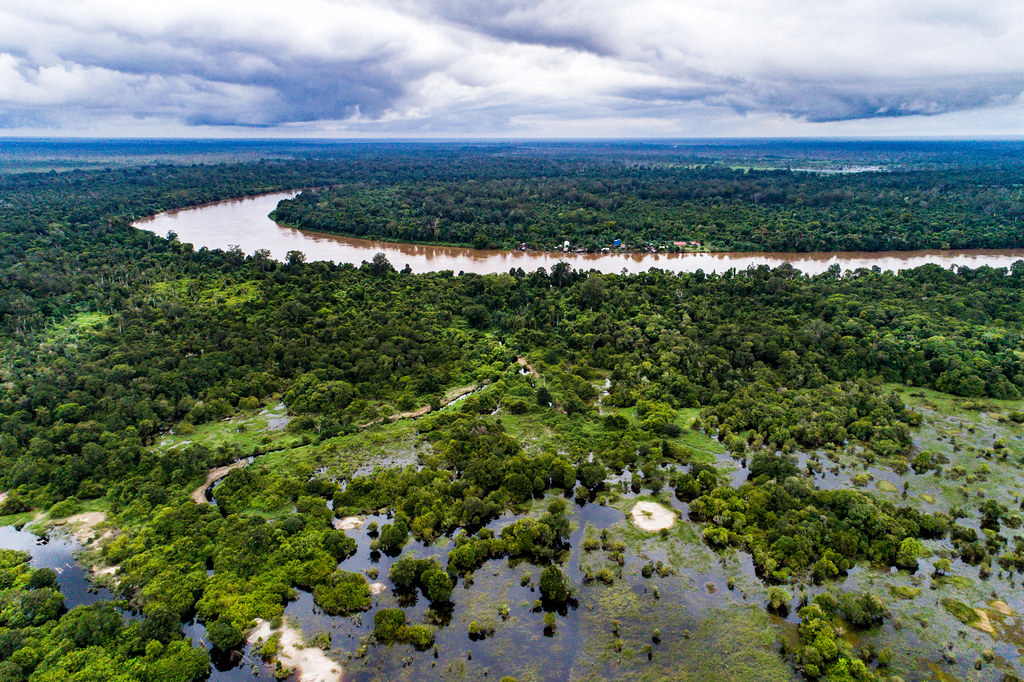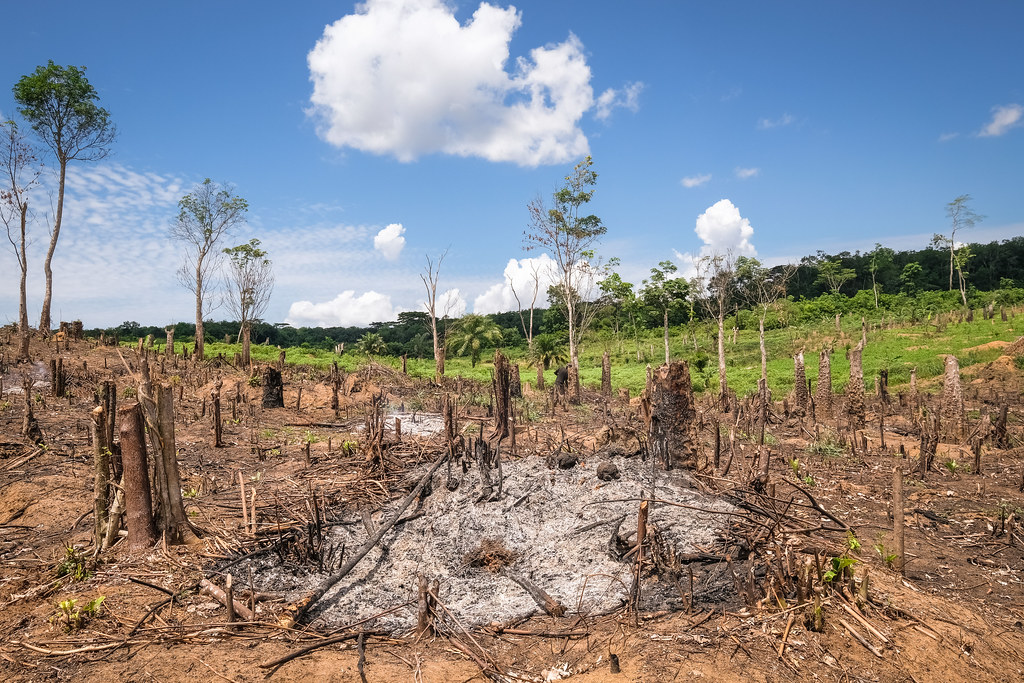歐盟執委會23日頒布一套保護和恢復世界森林的新行動綱領。森林承載著80%的陸域生物多樣性,支持著全世界25%人口的生計,更是因應氣候變遷的要角。

新的歐盟行動綱領企圖解決供需問題,透過加強與權益關係人和成員國間的國際合作,推動森林永續融資,更妥善地利用土地和資源,永續創造就業和供應鏈管理,以及更聚焦的研究和資料收集措施。
新方法包括評估可能的新監管措施,以盡量減少歐盟消費造成森林砍伐和森林劣化。
負責永續發展的第一副主席蒂默曼斯(Frans Timmermans)說:「森林是地球的肺,我們必須像照顧自己的肺一樣照顧森林。不保護世界森林,就無法實現氣候目標。」
蒂默曼斯表示,「全世界最重要的原始森林都不在歐盟領土上,但作為個人,我們的政策選擇能產生重大影響。今天我們向全世界公民和合作夥伴發出重要訊息,就是歐盟準備在未來五年和以後要在這個領域扮演領導者的角色。」

發表此通知前,歐盟已向權益關係人就森林砍伐、森林劣化和歐盟可能採取的行動進行廣泛諮詢和協商,包括2014年和2017年的兩次會議,2019年的公眾諮詢以及三項相關研究。
該通知也回應了歐洲理事會和歐洲議會對於加強協調行動的反覆要求,尤其是讓森林砍伐從農業生產鏈中消失。
負責就業、成長、投資和競爭力的副主席凱達寧(Jyrki Katainen)指出,「全世界的森林覆蓋率繼續以驚人的速度下降。透過此次的行動綱領,我們加強歐盟的行動,更妥善地保護現有森林,並永續地管理森林。當我們保護現有森林並永續增加森林覆蓋率,就保障了生計並增加當地社群的收入。森林也是個充滿希望的綠色經濟產業,可望在全球創造1000到1600萬個體面的工作機會。這次的行動框架是往前邁進的重要一步。」
這個時代最大的永續性挑戰,像是生物多樣性下降、氣候變遷和人口增長,森林都在其中扮演重要角色。國際的各項協議和承諾都承認,必須以積極的行動來扭轉森林砍伐趨勢。
土地利用,以及為了獲得土地而毀林所造成的碳排放,是氣候變遷的第二大主因,僅次於化石燃料燃燒,佔所有溫室氣體排放量近12%,超過運輸產業。因此,歐盟官員表示,保護森林是履行巴黎協定承諾的重要工作。

此次歐洲行動綱領對全世界森林持續受到大規模破壞做出回應。1990年至2016年間,毀林面積為130萬平方公里,速度相當於每小時800個足球場,主要的驅動因素是對糧食、飼料、生物燃料、木材和其他商品的需求。
從經濟和社會的角度來看,森林支持全球約四分之一人口的生計,也體現了不可替代的文化、社會和精神價值。
新的行動綱領有雙重目標,即保護和改善現有森林,尤其是原始森林的健康,並增加全世界永續、豐富生物多樣性的森林覆蓋。
針對此計畫,執委會列出了五個優先事項:
-
減少歐盟在陸地上的消費足跡,並鼓勵消費歐盟無森林砍伐的供應鏈產品;
-
與生產國合作,減少對森林的壓力,並就「防毀林」進行歐盟發展合作;
-
加強國際合作,遏止森林砍伐和森林劣化,並鼓勵森林復育;
-
重新導向財務資源,以支持永續的土地利用實踐;
-
讓林產物供應鏈相關資訊更容易蒐集、取得,而且是品質好的資訊,支持相關研究和創新。
歐盟將透過建立新的森林砍伐、森林劣化和森林生產多邊權益關係人平台,匯集廣泛的權益關係人,探尋減少歐盟消費和鼓勵使用供應鏈零伐林產品的行動。
執委會也鼓勵加強對零伐林產品的認證計畫,評估可能的需求方立法措施和其他激勵辦法。
執委會將與夥伴國家密切合作,幫助他們減少森林壓力,並確保歐盟政策不會導致森林砍伐和劣化。
合作夥伴將從執委會獲得幫助,以制定和實施全面的國家森林行動綱領,加強森林的永續利用,並提高以森林為基礎的價值鏈之永續性。
執委會將透過聯合國和聯合國糧農組織等國際機構、G20、世界貿易組織和經濟合作與發展組織等單位,加強相關行動和政策合作。
此外,執委會將繼續確保歐盟談判達成的貿易協定能有助全球供應鏈的責任和永續管理,並鼓勵不會導致毀林或森林劣化的農林產品貿易。
執委會更打算為小農建立獎勵機制,以維持和加強生態系服務,並實現永續農業和森林管理。
為了提高資訊蒐集、品質和可取得性,執委會提議建立一個歐盟森林砍伐和劣化觀測站,監測和衡量世界森林覆蓋率及相關驅動因素的變化。

這個資源將使公共機構、消費者和企業更容易獲取供應鏈的相關資料,鼓勵永續性的提升。執委會也將探討加強使用哥白尼衛星系統監測森林的可能性。
委員會將注重公共和私人資金的重新導向,以幫助永續森林管理和永續森林價值鏈創造激勵機制,並保護現有和永續的森林覆蓋再生。
執委會將與成員國一起評估如何促進森林綠色金融,以及利用和增加資金的機制。
全世界的森林儲存了大量的碳,從大氣中吸碳並儲存在生物質和土壤中。因此,停止砍伐森林和森林劣化對於因應氣候變遷非常重要。
自2003年以來,歐盟一直在實施森林執法、治理和貿易行動計劃(FLEGT),打擊非法採伐和貿易。
2008年執委會也曾發表過關於森林砍伐的通知,闡述歐盟政策綱領的初始要素,包括2030年停止全球森林覆蓋面積減少、2020年熱帶森林砍伐總量減少50%等目標。儘管有所努力,這兩個目標現在看來是不太可能實現了。
The European Commission today set out a new framework of actions to protect and restore the world's forests, which host 80 percent of biodiversity on land, support the livelihoods of around 25 percent of the world's population, and are vital to efforts to fight climate change.
The new EU approach addresses both the supply and demand side of the issue. It introduces measures for enhanced international cooperation with stakeholders and the Member States, promotion of sustainable finance for forests, better use of land and resources, sustainable job creation and supply chain management, and targeted research and data collection.
The new approach includes an assessment of possible new regulatory measures to minimize the impact of EU consumption on deforestation and forest degradation.
First Vice-President Frans Timmermans, responsible for sustainable development, said, "Forests are the green lungs of our planet, and we must care for them in the same way we care for our own lungs. We will not meet our climate targets without protecting the world's forests."
"The EU does not host the world's major primary forests on its territory, but our actions as individuals and our policy choices have a major impact," said Timmermans. "Today we send an important signal to our citizens and to our partners around the world that the EU is prepared to play a leadership role in this area in the next five years, and beyond."
Today's Communication comes after extensive stakeholder consultations on deforestation and forest degradation and possible EU action, including two conferences in 2014 and 2017, a public consultation in 2019, and three studies.
The Communication also comes in response to repeated requests from the European Council and European Parliament, calling for more coordinated action in particular through the elimination of deforestation from agricultural commodity chains.
Vice-President Jyrki Katainen, responsible for jobs, growth, investment and competitiveness, said, "The world's forest cover continues to decrease at an alarming rate. With this Communication, we are stepping up EU action to protect existing forests better and manage forests sustainably. When we protect existing forests and increase forest cover sustainably, we safeguard livelihoods and increase the income of local communities."
"Forests also represent a promising green economic sector, with the potential to create between 10 and 16 million decent jobs worldwide. This Communication represents an important step forward in this regard," said Katainen.
Forests play a major role in the biggest sustainability challenges of our time, such as biodiversity decline, climate change and population increase. International agreements and commitments acknowledge the need for ambitious action to reverse the deforestation trend.
Emissions from land use and land-use change due to deforestation are the second largest cause of climate change after the burning of fossil fuels, accounting for nearly 12 percent of all greenhouse gas emissions, more than the transport sector.
Because greenhouse gas emissions linked to deforestation are the second biggest cause of climate change, protecting forests is a significant part of our responsibility to meet the commitments under the Paris Agreement, the EU officials said.
The European approach outlined today is a response to the continued widespread destruction of the world's forests. An area of 1.3 million square kilometers was lost between 1990 and 2016, equivalent to 800 football fields every hour. The main drivers of this deforestation are demand for food, feed, biofuel, timber and other commodities.
From an economic and social perspective, forests support the livelihoods of around a quarter of the global population, and they also embody irreplaceable cultural, societal and spiritual values.
The Communication adopted today has a two-fold objective of protecting and improving the health of existing forests, especially primary forests, and increasing sustainable, biodiverse forest coverage worldwide.
For this plan, the Commission has listed five priorities:
* – Reduce the EU consumption footprint on land and encourage the consumption of products from deforestation-free supply chains in the EU;
* – Work in partnership with producing countries to reduce pressures on forests and to "deforest-proof" EU development cooperation;
* – Strengthen international cooperation to halt deforestation and forest degradation, and encourage forest restoration;
* – Redirect finance to support more sustainable land-use practices;
* – Support the availability of, quality of, and access to information on forests and commodity supply chains, and support research and innovation.
Actions to reduce EU consumption and encourage the use of products from deforestation-free supply chains will be explored through the creation of a new Multi-Stakeholder Platform on Deforestation, Forest Degradation and Forest Generation, which will bring together a broad range of relevant stakeholders.
The Commission will also encourage stronger certification schemes for deforestation-free products and assess possible demand-side legislative measures and other incentives.
The Commission will work closely with partner countries to help them to reduce pressures on their forests and will ensure that EU policies do not contribute to deforestation and forest degradation.
Partners will get help from the Commission to develop and implement comprehensive national frameworks on forests, enhancing the sustainable use of forests, and increasing the sustainability of forest-based value chains.
The Commission will work through international organizations – such as the United Nations, the UN's Food and Agriculture Organization, the G7 and G20, the World Trade Organization and the Organization for Economic Cooperation and Development – to strengthen cooperation on actions and policies in this field.
The Commission will continue to ensure that trade agreements negotiated by the EU contribute to the responsible and sustainable management of global supply chains, and encourage trade of agricultural and forest-based products not causing deforestation or forest degradation.
The Commission also intends to develop incentive mechanisms for smallholder farmers to maintain and enhance ecosystem services and embrace sustainable agriculture and forest management.
To improve the availability and quality of information, and access to information on forests and supply chains, the Commission proposes the creation of an EU Observatory on Deforestation and Forest Degradation, to monitor and measure changes in the world's forest cover and associated drivers.
This resource will give public bodies, consumers and businesses better access to information about supply chains, encouraging them to become more sustainable. The Commission will also explore the possibility of strengthening the use of the Copernicus satellite system for forest monitoring.
The Commission will focus on redirecting public and private finance to help to create incentives for sustainable forest management and sustainable forest-based value chains, and for the conservation of existing and sustainable regeneration of additional forest cover.
Together with the Member States, the Commission will assess mechanisms with the potential to foster green finance for forests and further leverage and increase funding.
Since 2003, the EU has been implementing the Forest Law Enforcement, Governance and Trade Action Plan, FLEGT, to fight illegal logging and associated trade.
A 2008 Commission Communication on deforestation set out the initial elements of an EU policy framework, including an EU objective to halt global forest cover loss by 2030 and to reduce gross tropical deforestation by 50 percent by 2020. But despite its efforts, the EU objectives established in 2008 are unlikely to be met and stronger efforts are required.
The world's forests store large amounts of carbon, which is drawn down from the atmosphere and stored in biomass and soil, so halting deforestation and forest degradation are crucial to fighting climate change.
※ 全文及圖片詳見:ENS







